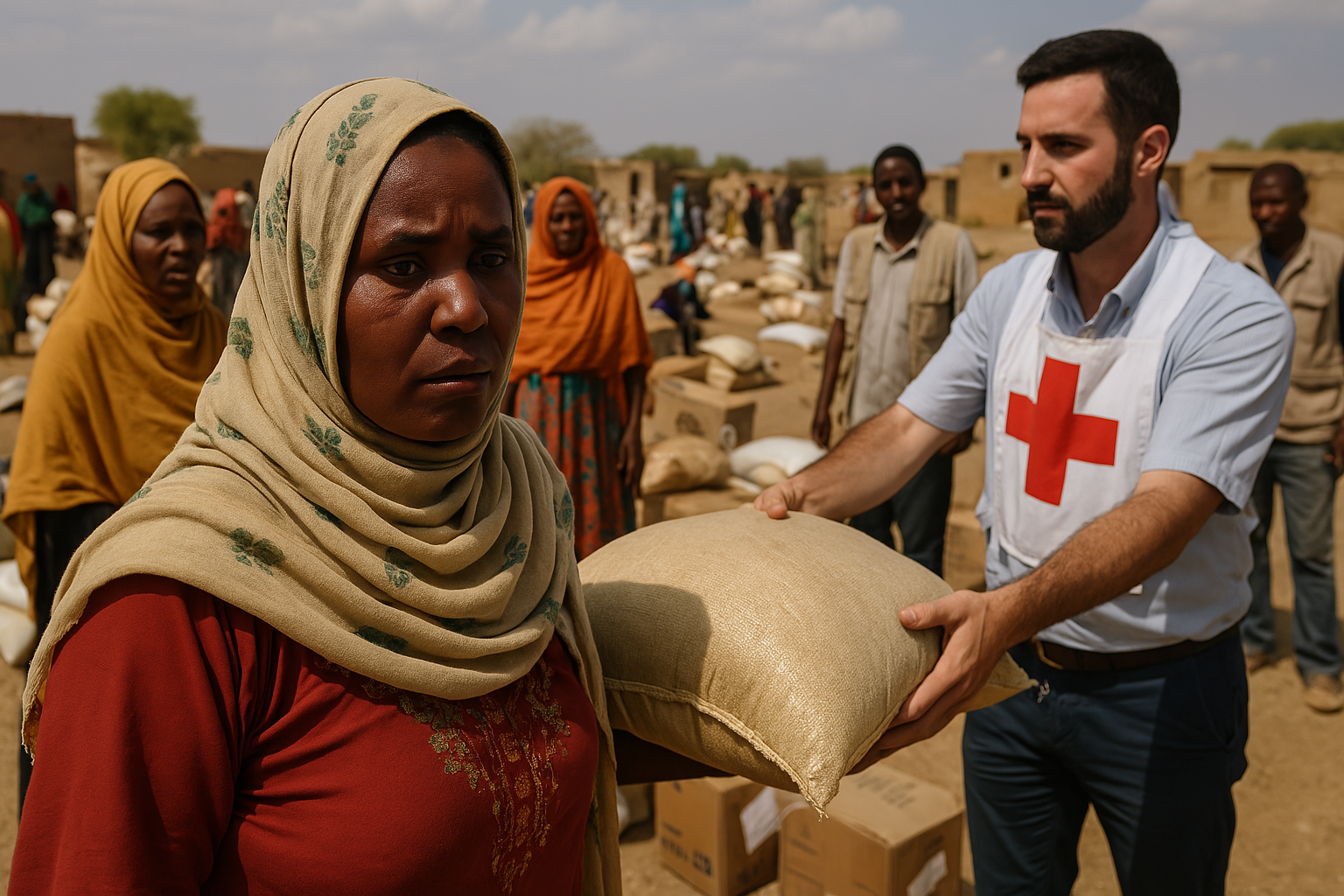AfDB Approves $19.85M Grant for Sudan with Focus on Women’s Empowerment
The project has been assigned a “Category 1” on the Bank’s Gender Marker System — the highest classification — signifying that gender equality and women’s empowerment are principal objectives.

The African Development Bank Group (AfDB) has announced the approval of a $19.85 million emergency humanitarian grant to support communities affected by the ongoing conflict in Sudan, with a strong emphasis on improving women’s livelihoods and building resilience in vulnerable populations. The project, known as the Crisis Response for Women and Affected Communities in Sudan, will be implemented in partnership with the International Committee of the Red Cross (ICRC) and aims to address immediate needs while also investing in long-term recovery and development.
A Gender-Responsive Humanitarian Effort
The conflict in Sudan, which erupted in April 2023, has devastated the country’s infrastructure and triggered a severe humanitarian crisis, displacing more than eight million people internally and forcing over 1.6 million, predominantly women and children, to flee to neighboring countries. In response, AfDB’s new initiative takes a gender-focused approach, aiming to alleviate the disproportionate impact on women and girls by enhancing access to critical services and economic opportunities.
The project has been assigned a “Category 1” on the Bank’s Gender Marker System — the highest classification — signifying that gender equality and women’s empowerment are principal objectives. Women-led households, which make up an estimated 65 percent of affected communities, will be at the heart of the program's design and delivery.
Addressing Urgent Humanitarian Needs
In the immediate term, the project will mobilize and train essential frontline personnel, including health workers, midwives, sanitation experts, and market facilitators. These workers will be deployed to crisis-affected areas to help restore vital social services.
Key deliverables of the project include:
-
Restoration of healthcare services: Five health facilities and four emergency centers will be rehabilitated and made operational in regions severely impacted by conflict.
-
Water and energy access: Ten integrated water and energy systems will be constructed or restored in both urban and rural communities to address pressing needs for clean water and electricity.
-
Emergency food assistance: Nutritional aid will include the distribution of staples such as lentils, sorghum, tea leaves, and sugar.
-
Agricultural support: Farming inputs — including seeds and fertilizers — will be provided to 60,000 people to promote local food production and reduce dependency on external aid.
-
Cash grants: Direct financial assistance will be provided to 125,000 people to support household income, especially targeting women-headed families and survivors of gender-based violence.
Building Resilience Through the Humanitarian-Development-Peace Nexus
The Crisis Response for Women and Affected Communities in Sudan project is a hallmark example of the Bank’s integrated humanitarian-development-peace nexus approach. It not only addresses urgent humanitarian needs but also supports medium- and long-term objectives, including the restoration of local economies, improved access to basic services, and community resilience.
Dr. Beth Dunford, AfDB Vice President for Agriculture, Human and Social Development, emphasized the strategic nature of the project:
“Peace, security and stability are urgently needed for Sudanese communities to reach their full potential. This project will help restore social services and economic opportunities to some of the country’s most vulnerable communities. The Bank financing will also strategically promote inclusive and resilient economic activities.”
The initiative is funded through AfDB’s Transition Support Facility, a mechanism introduced in 2008 to provide concessional support to countries affected by fragility and conflict. This aligns with AfDB’s broader strategy to foster inclusive growth, improve governance, and support the stabilization of fragile states across Africa.
Implementation by ICRC: Leveraging Local Expertise
The International Committee of the Red Cross will play a central role in the implementation of the project, leveraging its decades of operational experience in Sudan. The ICRC’s local network includes technical experts in monitoring and evaluation, procurement, gender mainstreaming, environmental safeguards, and strategic communication.
Using existing infrastructure and field staff, the ICRC will ensure efficient delivery of assistance, while maintaining the highest standards of humanitarian integrity and accountability.
A Lifeline for Over 1.5 Million Sudanese
The project is expected to directly benefit 1.5 million people — equivalent to approximately 265,000 households. The design ensures that women are not just recipients but active participants in crisis response and recovery efforts. A key component of the initiative will be encouraging women’s engagement in local governance, economic revitalization, and conflict resolution.
The Bank also recognizes the critical importance of policy dialogue with government bodies and civil society to ensure that women’s voices are represented in all aspects of recovery planning and crisis management. Building a pathway to peace and long-term development requires inclusive participation and locally driven solutions.
Hope Amidst Hardship
While the situation in Sudan remains volatile, the AfDB’s latest intervention signals a commitment to stand with Sudanese communities through the crisis and beyond. The project exemplifies how humanitarian relief, if thoughtfully designed, can lay the foundation for sustainable recovery and equitable development.
This multifaceted response provides hope not just for survival, but for renewed stability, dignity, and opportunity — especially for the women and children who bear the heaviest burdens of conflict.










